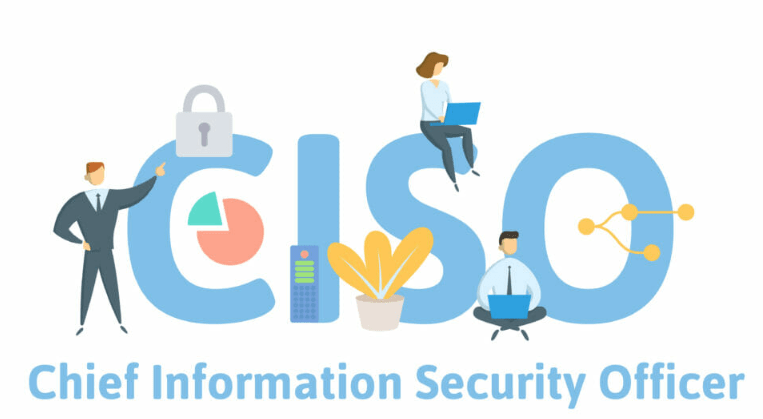The Value of the CISO in Protecting Data
The Growing Need for CISOs: Understanding the Role and Its Impact on Business Security
The role of the Chief Information Security Officer (CISO) is becoming increasingly important in today’s business world. As organizations become more reliant on technology, the need for a dedicated security professional to oversee the security of the organization’s data and systems is becoming increasingly necessary. The CISO is responsible for developing and implementing a comprehensive security strategy that meets the organization’s needs and protects its data and systems from malicious actors.
The CISO is responsible for ensuring that the organization’s security policies and procedures are up to date and in line with industry best practices. This includes developing and implementing security policies and procedures, monitoring and responding to security incidents, and ensuring that the organization’s systems are secure and compliant with applicable laws and regulations. The CISO is also responsible for educating employees on security best practices and ensuring that they are aware of the risks associated with their activities.
The CISO is also responsible for developing and maintaining relationships with external security vendors and partners. This includes working with vendors to ensure that their products and services meet the organization’s security requirements, as well as working with partners to ensure that their systems are secure and compliant with applicable laws and regulations.
The role of the CISO is becoming increasingly important as organizations become more reliant on technology. The CISO is responsible for ensuring that the organization’s data and systems are secure and compliant with applicable laws and regulations. The CISO is also responsible for developing and maintaining relationships with external security vendors and partners, as well as educating employees on security best practices. By having a dedicated security professional overseeing the organization’s security, organizations can ensure that their data and systems are secure and compliant with applicable laws and regulations.
The CISO’s Role in Establishing a Secure Cybersecurity Framework
As the Chief Information Security Officer (CISO), it is your responsibility to ensure that your organization has a secure cybersecurity framework in place. A secure cybersecurity framework is essential for protecting your organization’s data and systems from malicious actors. It is also essential for ensuring compliance with applicable laws and regulations.
The first step in establishing a secure cybersecurity framework is to assess the current state of your organization’s security posture. This assessment should include an evaluation of the existing security policies, procedures, and technologies in place. It should also include an assessment of the organization’s risk management practices. This assessment should be conducted by a qualified third-party security consultant.
Once the assessment is complete, the next step is to develop a comprehensive cybersecurity strategy. This strategy should include a detailed plan for implementing the necessary security controls and technologies. It should also include a plan for monitoring and responding to security incidents.
The strategy should also include a plan for educating and training employees on cybersecurity best practices. This training should include topics such as password management, phishing awareness, and data security.
Finally, the strategy should include a plan for regularly testing and evaluating the effectiveness of the security controls and technologies in place. This testing should include both internal and external assessments.
By taking these steps, the CISO can ensure that the organization has a secure cybersecurity framework in place. This framework will help protect the organization’s data and systems from malicious actors and ensure compliance with applicable laws and regulations.
The Benefits of Having a CISO: How It Can Help Protect Your Business from Cyber Threats
Having a Chief Information Security Officer (CISO) is an important step for any business looking to protect itself from cyber threats. A CISO is a senior-level executive responsible for developing and implementing an organization’s overall security strategy. By having a dedicated security professional in this role, businesses can ensure that their security posture is up to date and that their data is protected from malicious actors.
The primary benefit of having a CISO is that it provides a single point of contact for all security-related matters. This allows the CISO to be the go-to person for any security-related questions or concerns, and to ensure that all security policies and procedures are being followed. Additionally, the CISO can provide guidance on security best practices and help to ensure that the organization is compliant with any applicable regulations.
Having a CISO also allows businesses to stay ahead of the latest cyber threats. By having a dedicated security professional in this role, businesses can ensure that their security posture is up to date and that their data is protected from malicious actors. The CISO can also provide guidance on security best practices and help to ensure that the organization is compliant with any applicable regulations.
Finally, having a CISO can help businesses to build trust with their customers. By having a dedicated security professional in this role, businesses can demonstrate to their customers that they take security seriously and are committed to protecting their data. This can help to build customer loyalty and trust, which can lead to increased sales and revenue.
In conclusion, having a CISO is an important step for any business looking to protect itself from cyber threats. By having a dedicated security professional in this role, businesses can ensure that their security posture is up to date and that their data is protected from malicious actors. Additionally, the CISO can provide guidance on security best practices and help to ensure that the organization is compliant with any applicable regulations. Finally, having a CISO can help businesses to build trust with their customers, which can lead to increased sales and revenue.







